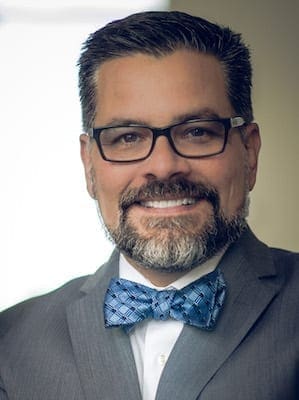Martin Luther nailed his Ninety-five Theses to the door of Castle Church in Wittenberg, Germany, on Oct. 31, 1517, setting in motion the Protestant Reformation that would split the Roman Catholic Church.
The fracture of European Christendom changed the world forever. Both spiritual and political power were decentralized, opening the door for the entrance of new ideas, leaders and systems.
A new freedom of conscience emerged that shifted the religious and political landscape.
Unfortunately, the Reformation also revealed that when humans seek justice for themselves, they often end up committing injustices toward others.
For example, Martin Luther, John Calvin and Ulrich Zwingli advocated for the execution of Christians they deemed heretics.
The Reformation centered around the attempt to discover a pure theological formula that would be superior to all others.
The search continued to deeply divide European Christendom, creating numerous fractures even within Protestantism.
As Protestant Christians continued their search for theological correctness, the notion of being “doctrinally correct” emerged as a measuring stick.
“Doctrinal correctness” determined salvation (who gets into heaven, who goes to hell), Christian identity (Christian tribalism or denominational identity) and worthiness (only the elect and doctrinally pure can be trusted with authority and power).
If another Christian did not submit to the church’s doctrine, they were deemed a heretic worthy of church discipline, excommunication or even death.
In America, this formula played out in the Massachusetts Bay Colony, as Protestants fleeing persecution arrived on America’s shores to discover another expression of it.
Quakers and Baptists, alike, were jailed and executed for their beliefs and opposition to the state-sanctioned church.
And before you say that happened a long time ago, let’s not forget the lynching of black Americans based upon a severely flawed theology of racial hierarchy and segregation.
Indeed, the church’s attempt to be “doctrinally pure” has only led to more conflict, divisions, pain and death.
So, I am calling for my fellow sojourners and Jesus-followers to help put an end to the Protestant Reformation.
Now, before anyone hangs the tag “heretic” on me, let me explain.
The Reformation served the world well, breaking old structures and erecting new ones.
However, as I have pointed out, the Reformation revealed other flaws over the last 500 years.
The time to end the Protestant Reformation is upon us. The time for a new era of the church needs to begin. The church needs to move from reformation to transformation.
Writing to the Romans, the Apostle Paul encouraged, “Do not be conformed to this world but be transformed by the renewing of your minds so that you may discern what the will of God is – what is good and acceptable and perfect” (Romans 12:2).
Naturally, the question arises: What is “good and acceptable and perfect?” For the Christian Transformation to begin, let’s start by considering two conversations with Jesus.
The first occurs in his hometown of Nazareth when he read from the scroll of Isaiah and offered commentary.
He read aloud, “The Spirit of the Lord is upon me because he has anointed me to bring good news to the poor. He has sent me to proclaim release to the captives and recovery of sight to the blind, to let the oppressed go free, to proclaim the year of the Lord’s favor” (Luke 4:18-19).
For his reading of the text, the crowd praised him. However, when Jesus turned the tables on them, revealing God’s favor was not upon them, but upon the marginalized, ostracized and forgotten, they quickly turned on him.
How dare the son of Joseph tell them God’s favor was not upon them. How could God’s favor be upon those outside the faithful? Shouldn’t God favor those who have always believed, said and done the “right” things?
Later in Luke, we find the second conversation when a lawyer approached Jesus looking for the “right” formula so he could inherit enteral life.
After a brief discussion about keeping the law, Jesus affirmed the theological practice for transforming both individuals and the world. “Love the Lord your God with all your heart, and with all your soul, and with all your strength, and with all your mind; and your neighbor as yourself” (Luke 10:27-28).
The lawyer did not question loving God but inquired about the identity of his neighbor. In response, Jesus told the parable of the Good Samaritan.
For Jesus, everyone – including his enemies – was his neighbor. For Jesus, the secret for both individual and global transformation was love.
The world should do everything it can to love God and love neighbor. And, who is our neighbor? Everyone.
The Christian Transformation can take shape if we permit love to be the center of our theological praxis.
How do we define love? We should define it like Paul.
For him, love did not force people to conform to this world (even doctrines and practices instituted by a flawed church – recall the controversy over circumcision in Paul’s day).
We must allow ourselves and society to be transformed by a fresh breath of God’s spirit.
Faith will no longer be defined by belief and doctrine alone but gauged by the love one exhibits toward God and others.
God’s love has no restrictions. God loves all, no matter who they are or what they have done. While God may get disappointed with us, God never stops loving us.
Therefore, while we continue to strive toward knowing more about God, we must never give up the notion that God loves all people – no exceptions.
Embracing this truth, the Christian Transformation will reverberate that kind of love throughout the world.
Think about what the world would be like if we allowed unconditional love to filter through every relationship.
We would put others’ needs before our own. We would consider others’ opinions. We would reject autocratic rule. We would fight for justice. We would make sacrifices for the common good.
We would embrace our brothers and sisters, no matter the color of their skin, the name of their religion, the size of their pocketbook, their gender identity or the person they love.
We can no longer afford to wait because Christian conformists continue to narrow the tent, advocate for self-preservation and pervert the gospel for political power.
The time to move from reformation to transformation is now. The Christian Transformation can be a reality, a new era for the church to place unconditional love at the center of her identity and mission.


